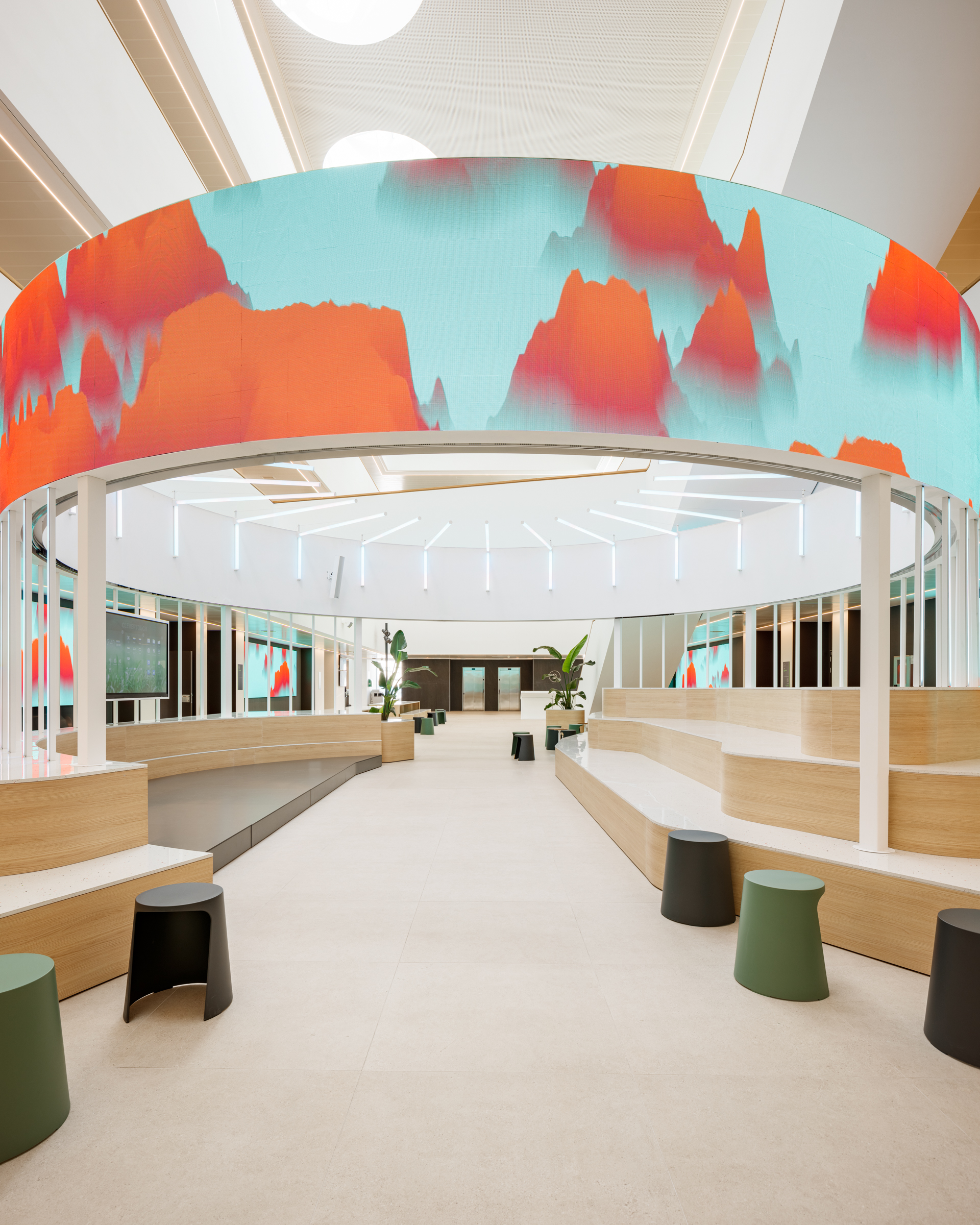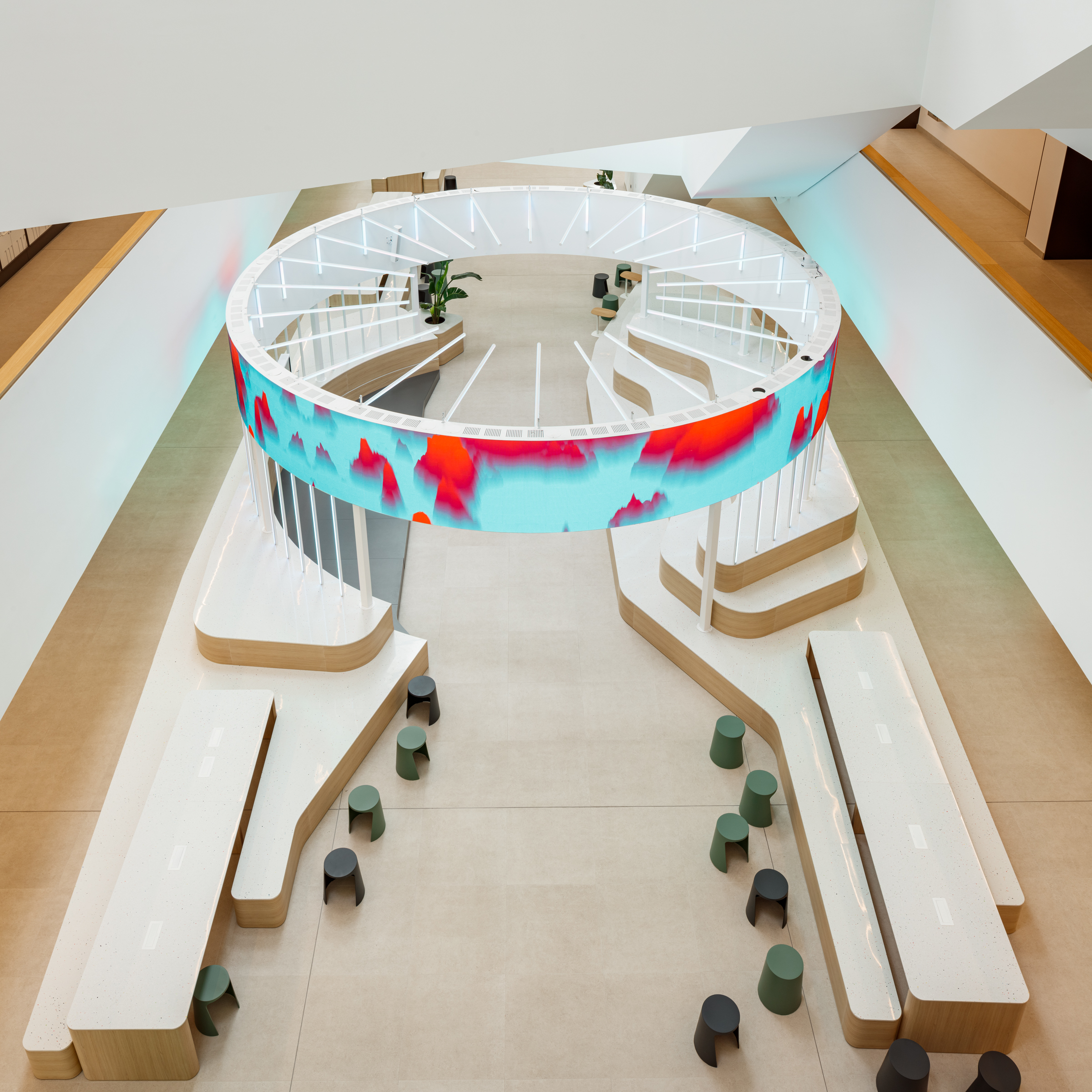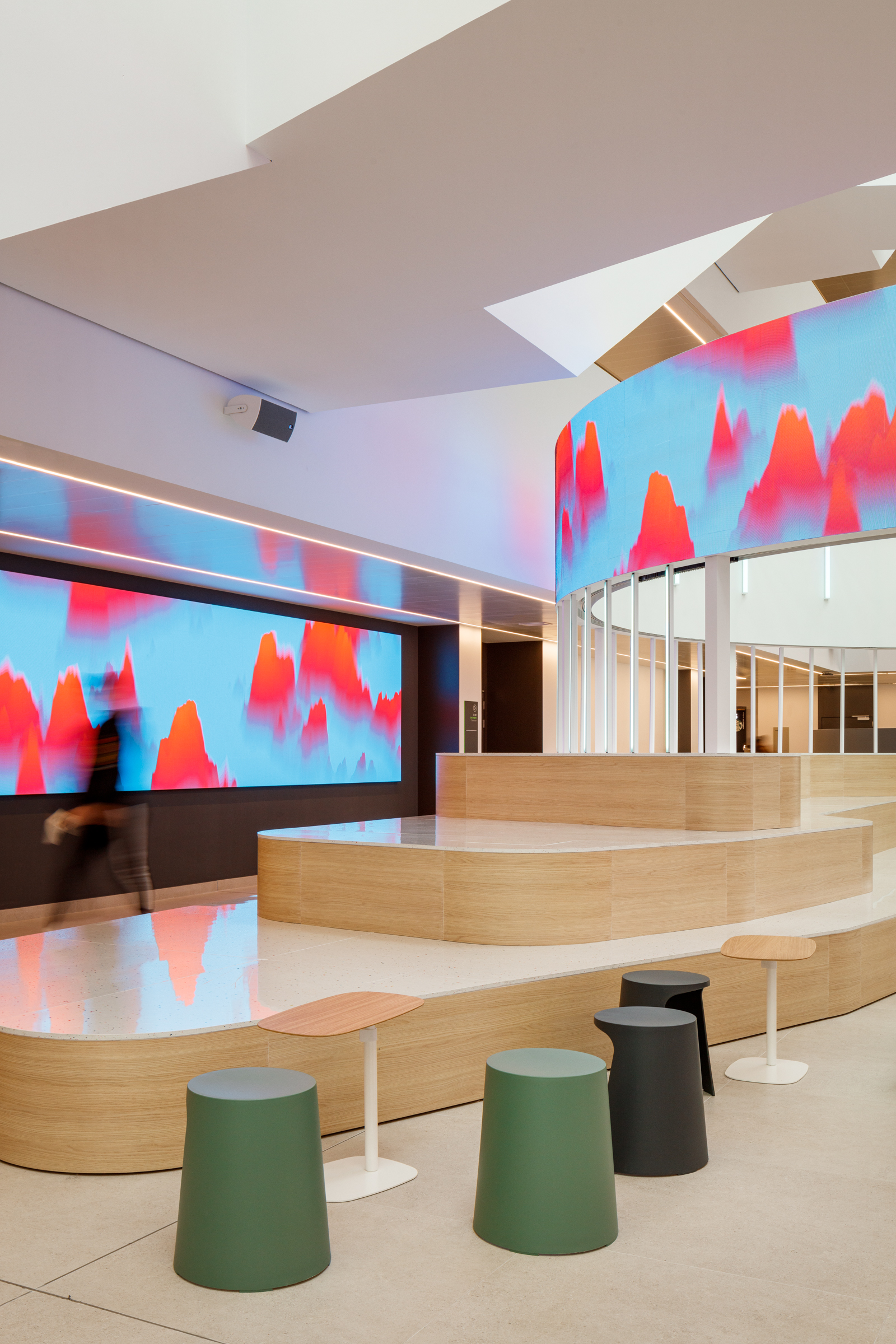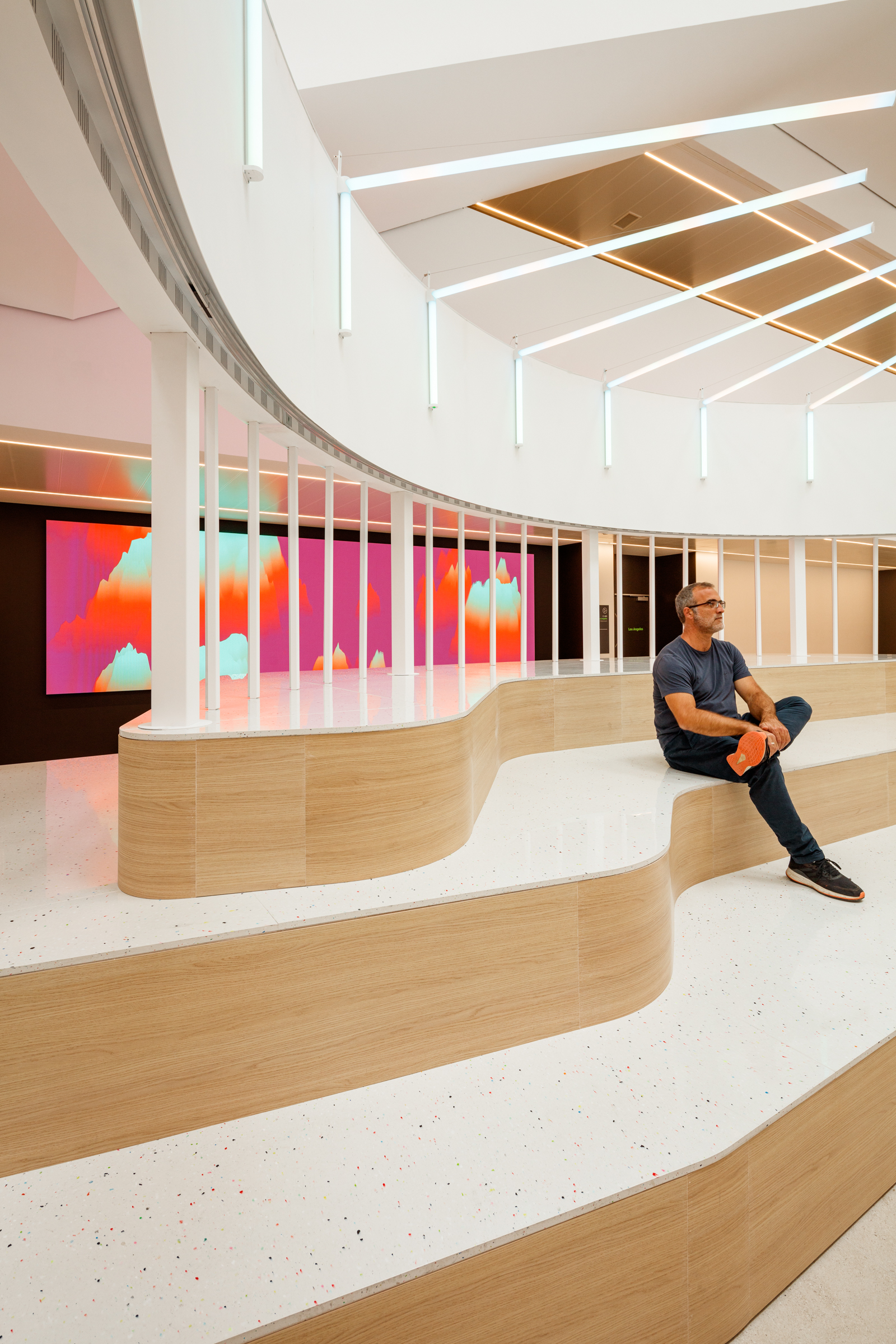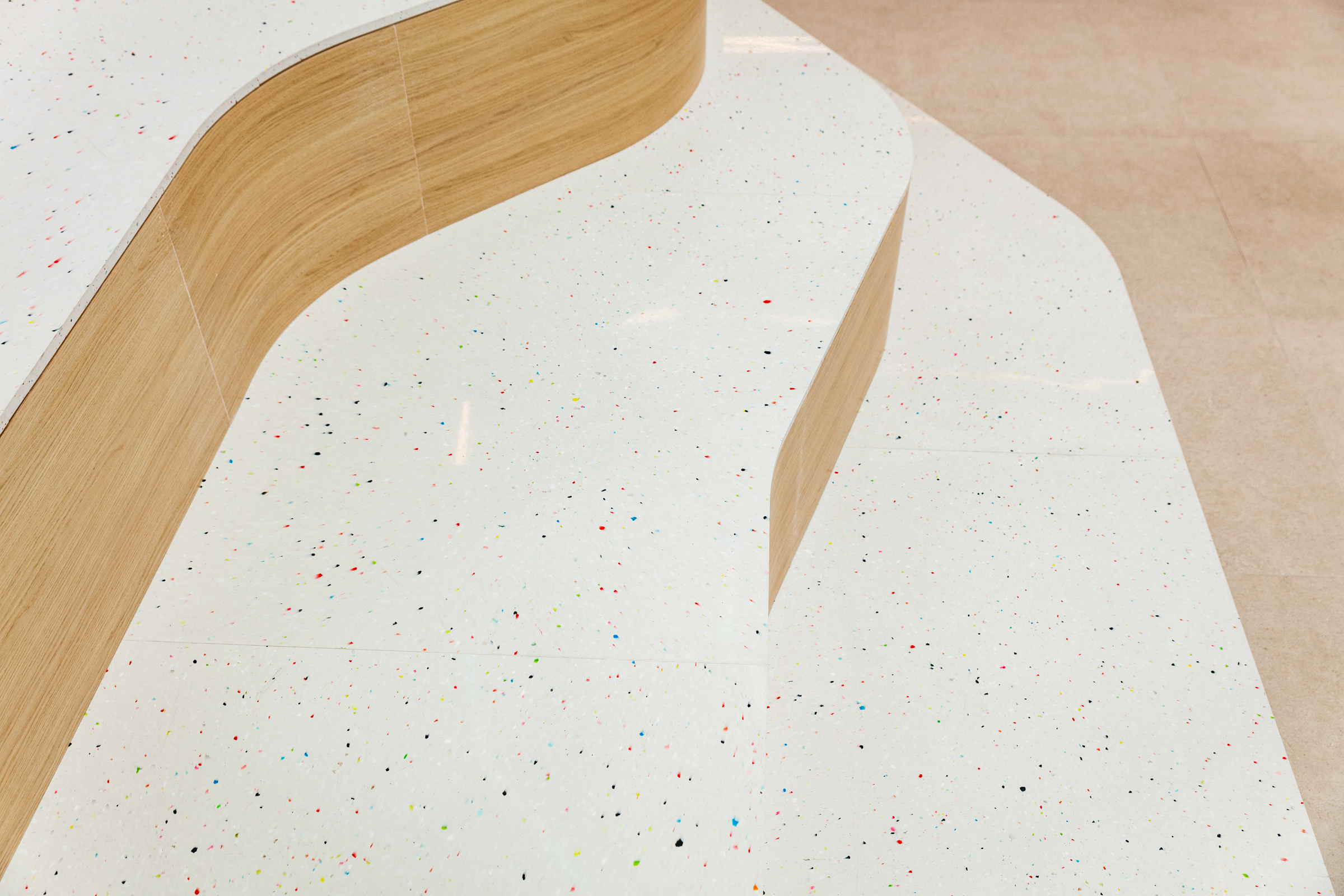| Company Details | |
|---|---|
| Company Name | The Good Plastic Company |
| Company Address | Keersluisweg 7, Hal 1 Almere 1332 EE Netherlands Map It |
| Your Contact Details | |
| Name | Alisa Mitlitska |
| Job Title | Marketing Manager |
| Email hidden; Javascript is required. | |
| Phone | +34610651067 |
| Role of this organisation in the project being entered | Material Producer |
| Category - Interior |
|
| Entry Details | |
| Name of organisation entering the Awards (if different from above) | The Good Plastic Company |
| Role of this organisation in the project being entered (if different from above) | Material Producer |
| Project/Product Name (written how it should appear) | Entertainment Science Campus atrium, Madrid Content City University |
| Project Address | Avenida de España 4 Tres Cantos Madrid 28760 Spain Map It |
| Client Name | Grupo Planeta - |
| Designer/Architect Name | deardesign studio - |
| Contractor Name | - - |
| Project/Product Description | Completion date 24/06/2022 Construction cost £518,115 deardesign studio conceptualised a fresh and vibrant interior design concept for the 1,200 square metre atrium of Madrid Content City’s new Entertainment Science Campus, a university that is part of the second-largest audiovisual production centre in Europe. The primary purpose of this space is to function as the university’s nerve centre and connection hub, and is its most iconic place. The atrium is designed to showcase media projects on an array of screens and to be a versatile, muti-function venue for a range of activities that maximally supports productivity and interaction between students and professionals in order to bring out their creativity and talent. The result is a striking arena featuring an open stage for presentations, conferences or informal meetings, with a multi-level seating area configurable into different seating formats. A notable feature of the design is the incorporation of sustainable materials, specifically the ingenious use of Polygood® panels made entirely from recycled and recyclable plastic by The Good Plastic Company. The panels adorn the surfaces of the seating area, benches, and tables, and complement the design’s use of white and natural wood surfaces. This backdrop integrates beautifully with the atrium’s impressive technological elements, including dynamic lighting, LED screens, and a stunning central circular screen measuring 27 linear metres. The designers chose the White Lollipop pattern for its qualities of elegance mixed with a little fun. The panels’ white base is derived from recycled refrigerators and freezers, while the bright coloured dots originate from disposable plastic cutlery. A total of 41 Polygood® panels were used, each 2,800 x 1,400 mm and 20 mm thick. This implementation used the equivalent of almost 4 tonnes of recycled plastic waste that might otherwise have been burned or buried in landfill, demonstrating that sustainable materials are not restricted to artisanal production but can be produced at scale to meet the requirements of large projects. The aim of the project was to create a spatial identity that embodies the essence and character of the audiovisual entertainment sciences campus. By creating a dynamic and contemporary environment, it promotes engagement and collaboration between students and professionals, encouraging a shared space for interaction. The atrium is equipped with the latest technology to support learning and cooperative work. The implementation of teamwork-oriented spaces, collaborative work areas with desks, meeting rooms with screens, and workstations with adjacent coffee break points demonstrates a commitment to creating a technologically advanced environment. At the same time, the client and designers were determined to deliver a project based on ecodesign principles, reflected in the choice of recycled and sustainable materials, including furniture made from Cradle to Cradle Certified® materials such as Polygood® and MDF boards from Finsa. In all, this design project has sought to reflect the essence of the audiovisual industry and generate healthy spaces for users and areas of collaborative and individual learning, delivered through the use of new sustainable materials to enhance the atrium as a space for meeting, experimentation, creation, dissemination of knowledge and celebration. |
| Materials Used | The design prominently features Polygood® panels made by The Good Plastic Company, specifically the White Lollipop pattern. Polygood® is a sustainable surface material whose credentials are supported by an Environmental Product Declaration (EPD) and Cradle to Cradle Certified® status. It is made entirely from 100% recycled and recyclable polystyrene (PS), a type of plastic that has excellent mechanical properties and scratch resistance, suiting it to structural as well as decorative applications. These panels stand as a distinctive, large-scale sustainable product offering compared with more artisanally produced alternative sustainable materials, giving clients the opportunity to make genuine positive environmental impact. The patterns are derived from combining an array of post-consumer and post-industrial plastic waste sources, including items like refrigerators, single-use cutlery, household appliances, and manufacturing components. The result is a wide range of distinctive designs suiting every context, from ones mimicking the colours and textures of natural stone to others that are brightly coloured and that make a virtue out of being obviously plastic in origin. Importantly, the verified EPD reinforces The Good Plastic Company’s dedication to quantifying the environmental impact of its products. This sustainable choice of material helps divert disposable plastic away from incinerators, landfill, and the natural environment, and delivers the maximum benefit from resources by reusing them through the company’s take-back and remanufacturing programme according to circular manufacturing principles. |
| Sustainability | Using Polygood® solid surface materials in the project, deardesign studio reduced CO2 emissions by 11,018.96 kg (just over 11 tonnes) compared to using virgin plastic. Calculation based on figures from the ecoinvert database v3.9.1. Additionally, the material’s Cradle to Cradle certification is based on its circularity, as Polygood® panels and offcuts can be recycled repeatedly through The Good Plastic Company’s take-back and remanufacturing programme. Further details can be provided if required. |
| Supporting Images |

